
Flower of the Australian Native Fan Flower Stock Image Image of close, horticulture 116723375
$5.75 Vibrant flowering native ground cover, plant in a sunny spot to enjoy the abundant small purple-blue flowers. Lovely in a hanging basket where it will trail over the sides, or mass plant around shrubs for a natural wildflower look. The flowers are smaller and more rounded than other fan flowers - you can see comparisons in the image gallery

How to Grow Fan Flower gardening fan flower, growing fan flower
The genus is found right across Southern Australia. This is a hardy easy to grow plant, excellent in containers as well as in the garden. The name comes from the arrangement of the petals in the form of a 'Fan', and flowers can be the usual purple, pink or sometimes white.
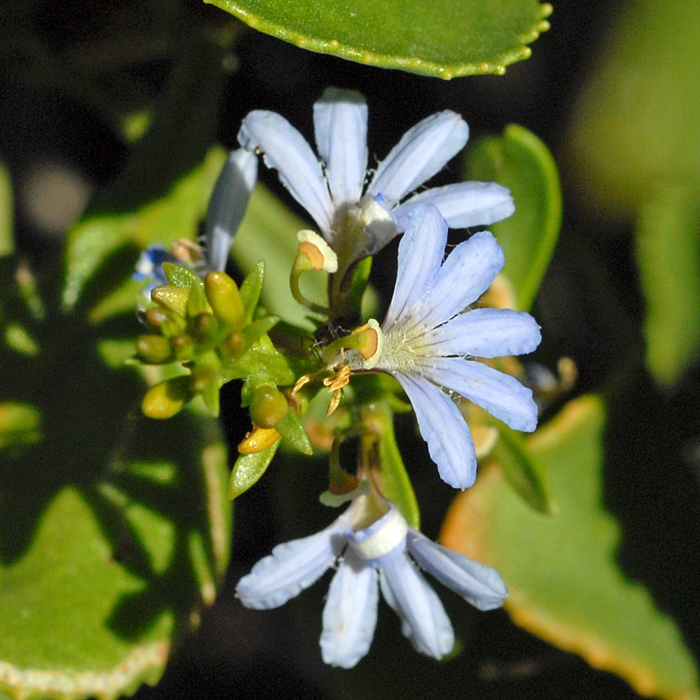
Australian Wild flower Scaevola crassifolia Thickleaved Fanflower
Fan flower ( Scaevola aemula ), also known simply as scaevola, is a warm-weather perennial or small shrub that is often grown as an annual flower. It is an excellent plant for any region with warm summers.
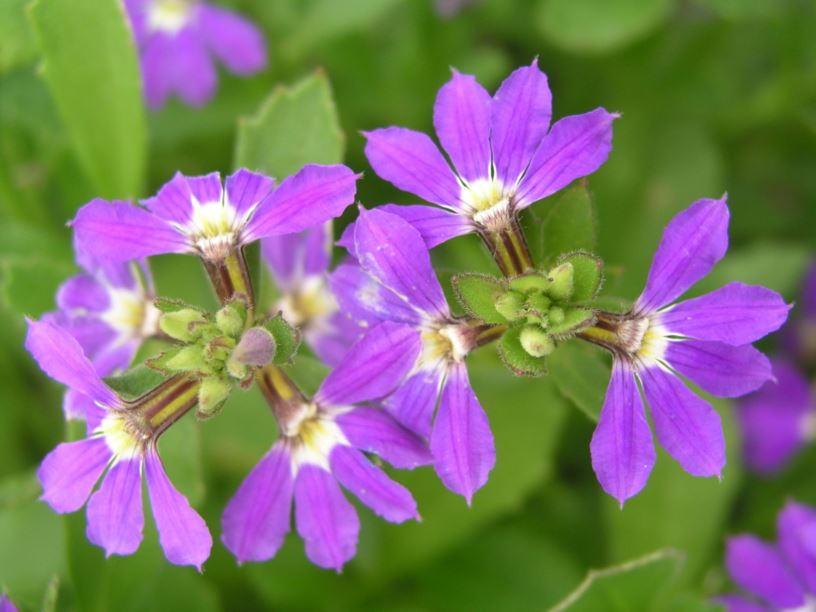
Scaevola aemula 'Scasalute' AUSSIE SALUTE Fan Flower The Australian Botanic Garden Mount Annan
View. Scaevola aemula, the fairy fan-flower or common fan-flower, is a small shrub in the family Goodeniaceae, native to southern Australia. It grows to 50 cm in height and produces white or blue flowers in spikes up to 24 cm long from August to March in its native range. These are followed by rounded, wrinkled berries to 4.5 mm in length.
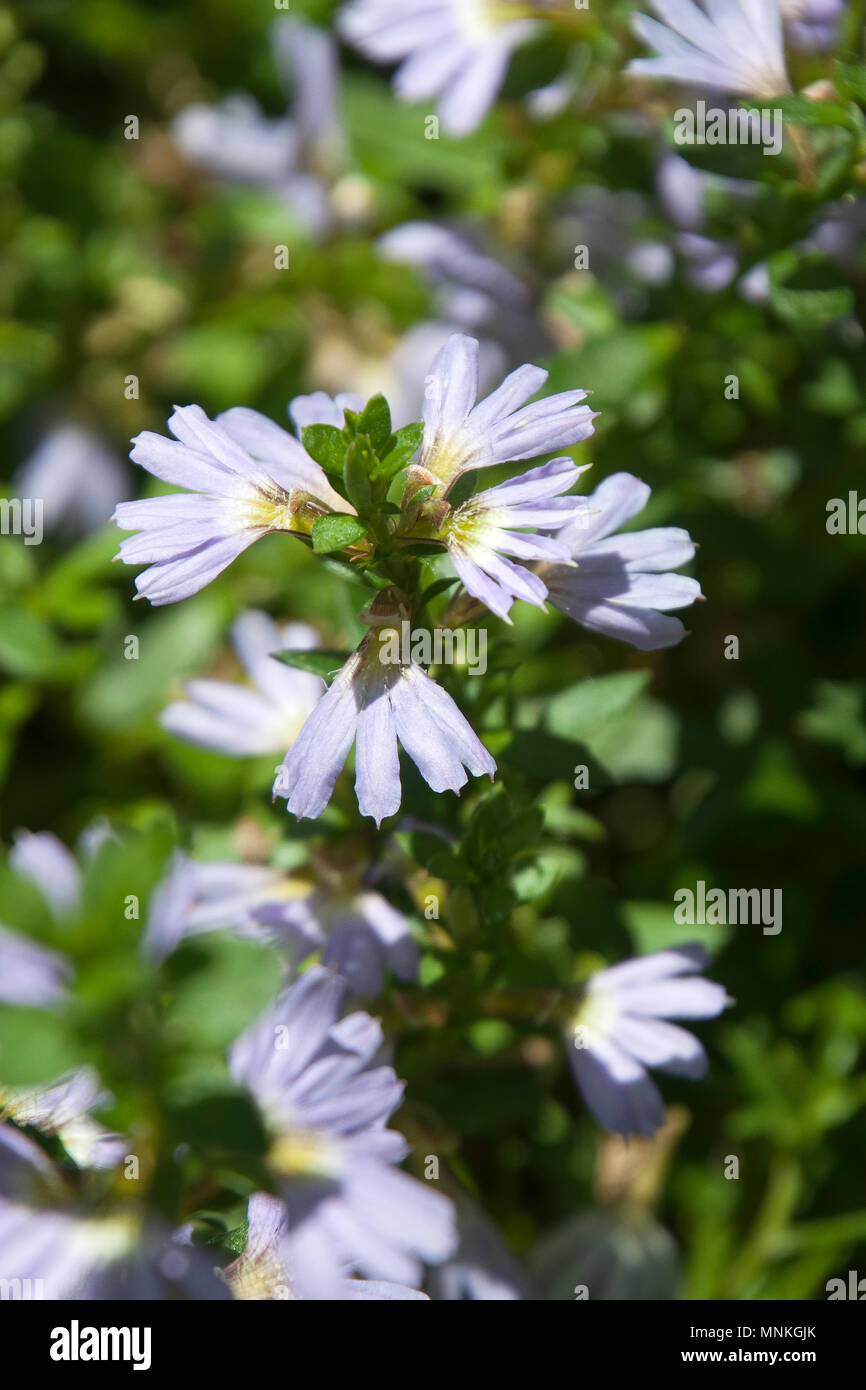
Sydney Australia, australian native fan flower in bloom Stock Photo Alamy
The trait data shown here are a selection from AusTraits, an open-source, harmonised database of Australian plant trait data, sourced from individual researchers, government entities (e.g. herbaria) or NGOs across Australia.Traits vary in scope from morphological attributes (e.g. leaf area, seed mass, plant height) to ecological attributes (e.g. fire response, flowering time, pollinators) and.
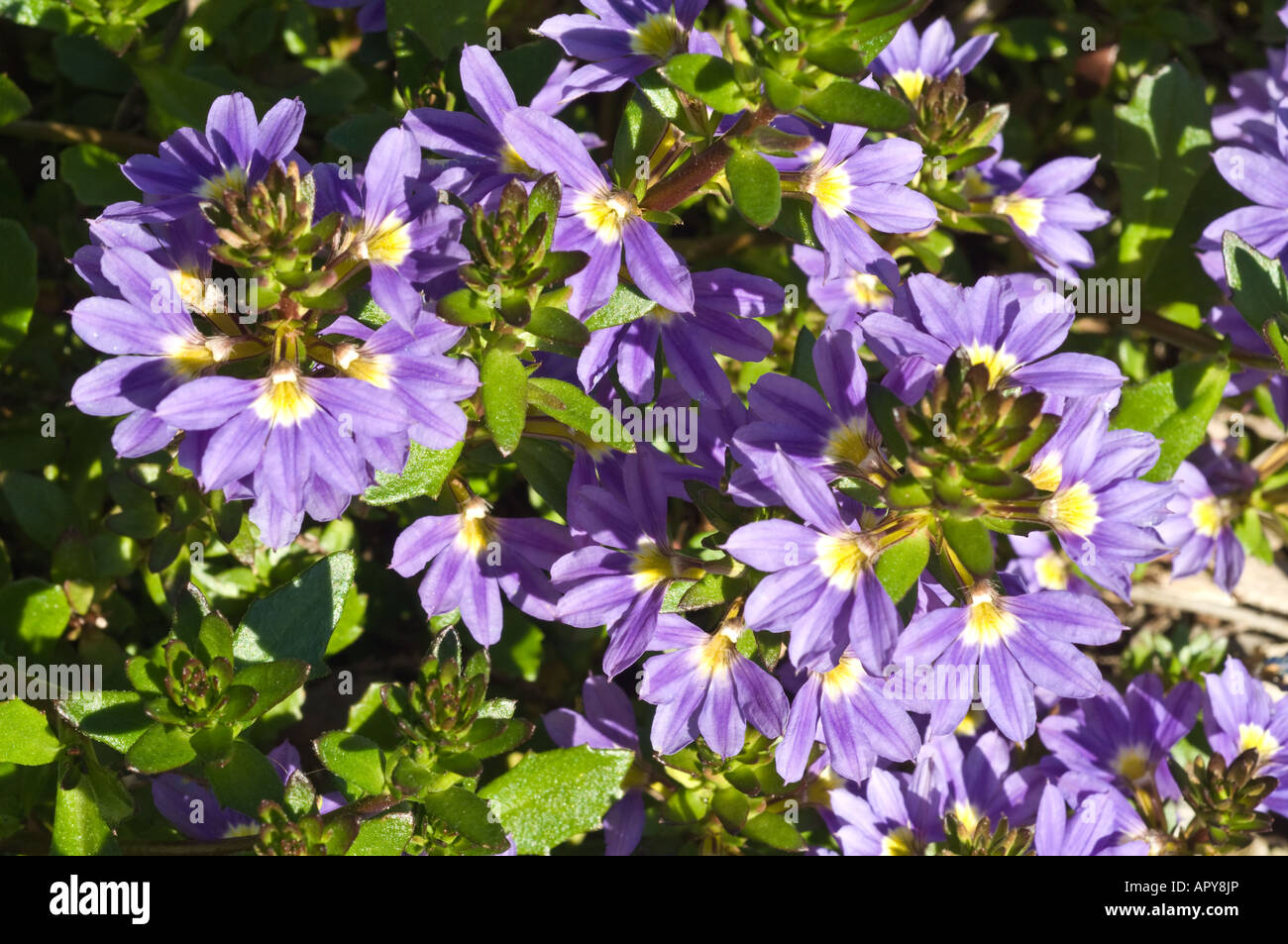
Fan Flower (Scaevola aemula) Purple Fanfare blooms Kings Park Perth Western Australia September
Flower Bio: Scaevola, Fan Flower (Scaevola aemula) Brief Video: Intro to Fan Flower. Botanical Family: Goodeniaceae (Goodenia Family) Related to: Australian native cornflower, dampiera, lechenaultia Born in: Fan flower is originally from southern Australia, where it grows as a small shrub. Bred by: Fan flower rose in popularity relatively recently.The Kings Park and Botanic Garden plant.
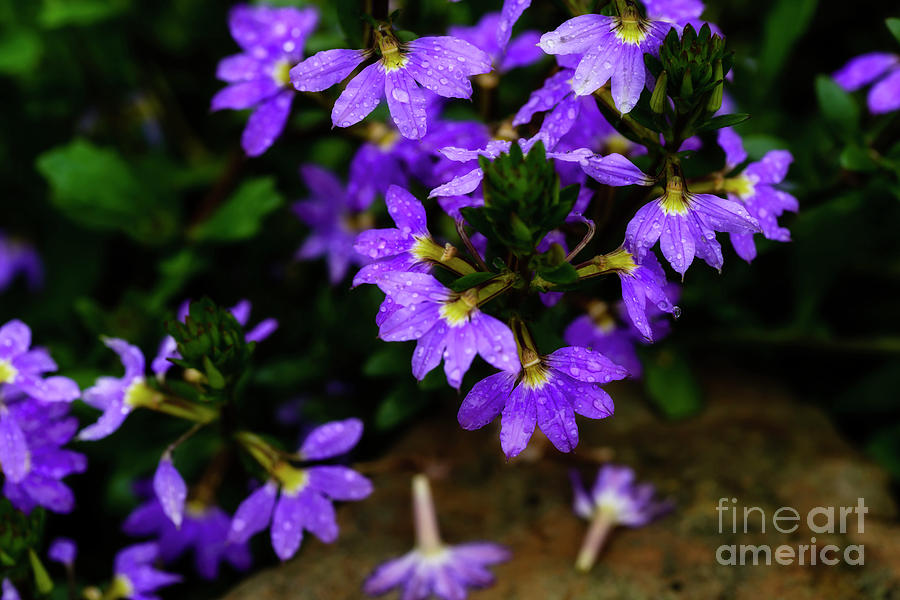
Australian Fan Flower Photograph by Thomas R Fletcher Fine Art America
Australian Native Scaevola (Fan Flower) [+] Enlarge SCAEVOLA thesioides Fan Flower Stock: In Stock SKU Code: N 245. SIZE: 1 packet $4.50 10 grams $18.00 100 grams $135.00 1000 grams $990.00 25 grams $45.00 250 grams $303.75 $4.50 QTY: Add to Cart Family: Goodeniaceae Characteristics: Spreading shrub 20 cm to 1 m Seed per packet: Approx. 50
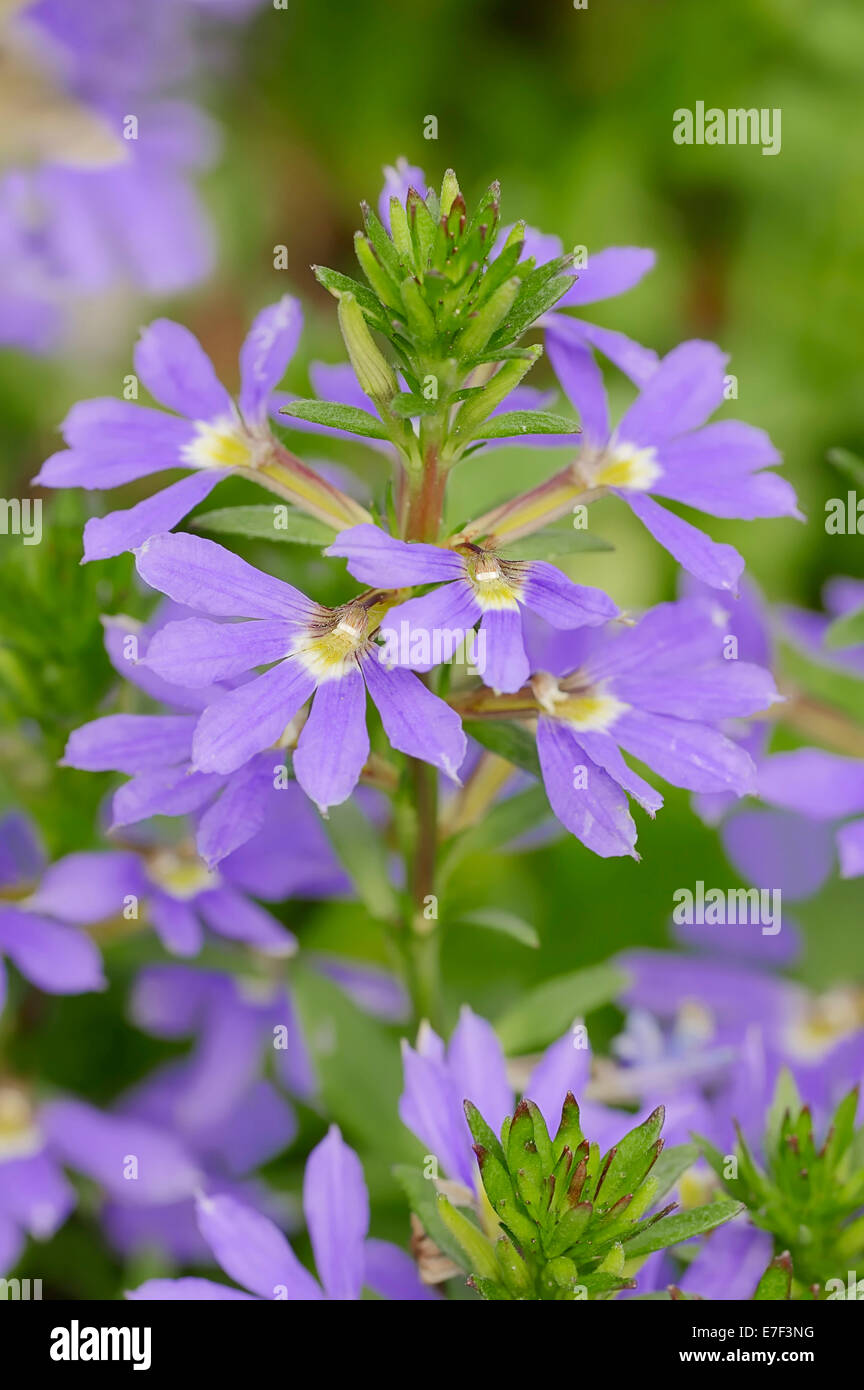
Fairy FanFlower or Common FanFlower (Scaevola aemula), flowers, native to Australia and
Scaevola aemula. "Fan Flower". GROUNDCOVER TO 1 METRE ACROSS Spreading habit with dark green leaves & pretty fan-shaped white, mauve/blue or lavender flowers in Spring/Summer. Good hanging basket plant. Attracts Meadow Argus butterfly. Suitability. Category.

PlantFiles Pictures Scaevola Species, Fairy Fan Flower, Fanflower (Scaevola aemula) by Ulrich
Scaevola aemula, also called the common fairy fanflower or just fanflower or Scaevola mauve cluster, is one of the popular groundcover native plants from Australia. Known for its delicate fan shaped blooms and cascading habit, small green toothed leaves, the scaevola aemula provides gorgeous colour and versatility in gardens.

Scaevola aemula fan flower 'Purple Fanfare' Australian plants, Australian wildflowers
Scaevola aemula is a member of the family Goodenaceae. The widely known common name is Fairy Fan-flower, which pertains to the small size of the S. aemula plants. It is distributed along the New South Wales and Victorian coastlines where it can be found in the form of a low growing perennial herb.

PlantFiles Pictures Scaevola, Fan Flower, Fanflower 'Bombay Pink' (Scaevola aemula) by Kell
Since these plants are native to Australia, they will grow well in warm and hot weather. If the temperatures fall below 60° F, they will slow down or even stop flowering. Fan flower likes day time temperatures between 70° F and 85° F best, and temperatures of about 68° to 70° degrees F at night.

25 Beautiful Australian Wildflowers by R. Philip Bouchard The Philipendium Medium
Small flower size is compensated for by the extremely floriferous habit. A great feature, border, pot or hanging basket plant.. Common Name : Fan Flower. Height : 0.2. Flower Color : Mauve. pH Level : Acid, Neutral.. Site Hosted by Hosting Australia.

Pin on I Love Colors 1
By contrast, nearly all species outside Australia have shrub habits with fleshy fruit making dispersal by frugivores easy.{The plant pathogenic sac fungus Mycosphaerella scaevolae was discovered on a Scaevola fan-flower. In Europe, Scaevola aemula is a fairly common container- and bedding plant, usually grown as an annual. [citation needed]
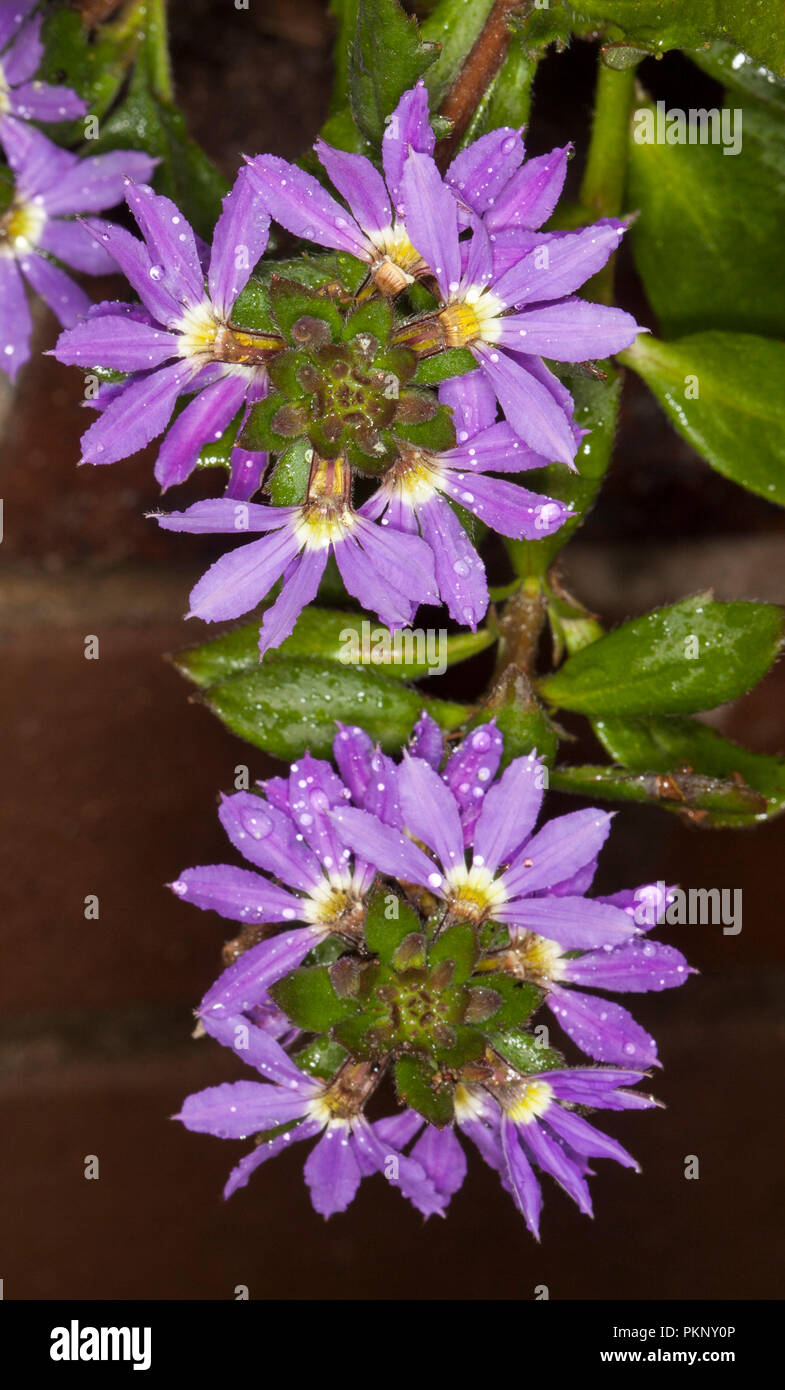
Clusters of deep purple flowers and emerald green leaves of fan flower, Scaevola aemula
Scaevola aemula, commonly known as the fairy fan-flower or common fan-flower, [2] is a species of flowering plant in the family Goodeniaceae. It has mostly egg-shaped leaves and blue, mauve or white fan-shaped flowers. It grows in New South Wales, South Australia and Victoria. Description
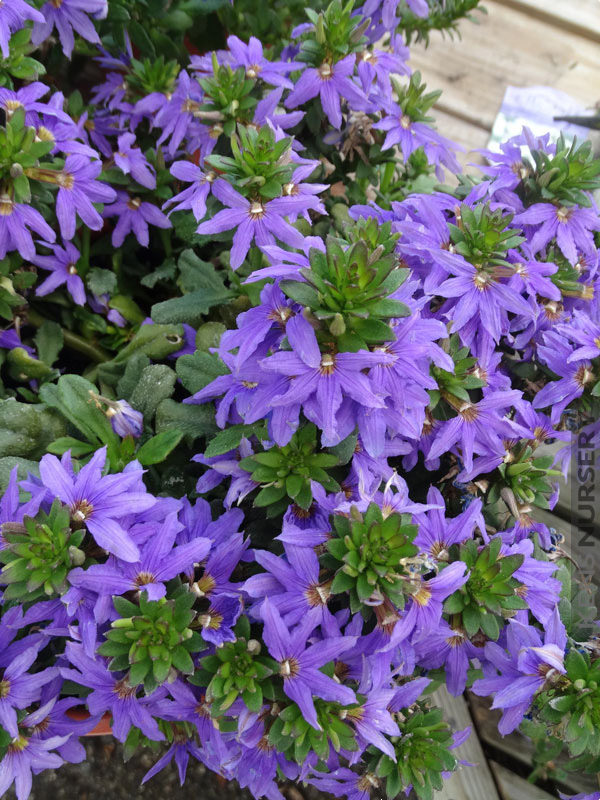
Simply Riveting, Australian Blue Fan Flower Scaevola Aemula KensNursery
Scaevola - How to Grow and Care for Fan Flower Add season-long color and flair to your summer garden with this extremely heat-tolerant plant FREE WEEKLY NEWSLETTER: Plants, Design Ideas, Gardening Solutions & More! Whirlwind® Starlight™ fan flower ( Scaevola aemula ). Photo by Proven Winners.
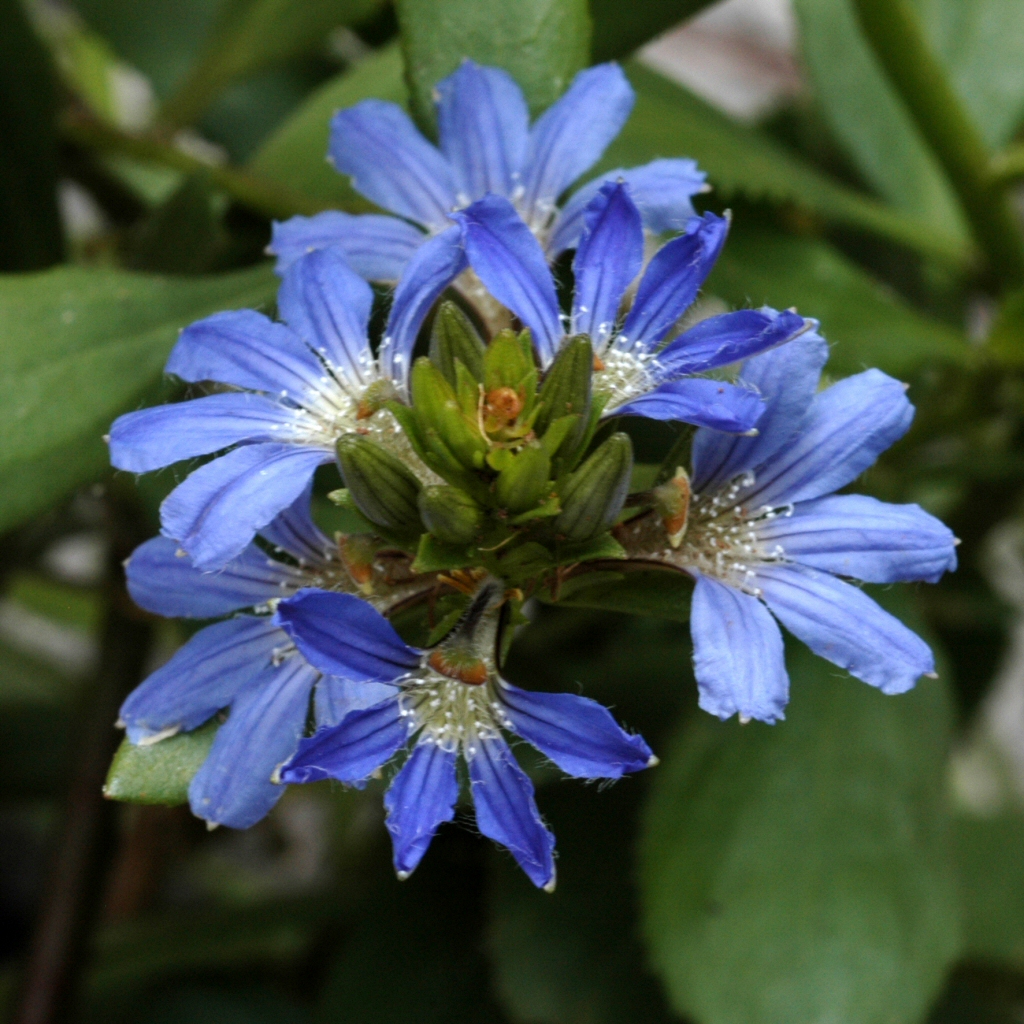
Scaevola nitida ‘Aussie Spirit’ Fan Flower Gardening With Angus
Cultivar Name: Aussie Crawl Plant Type : Ground cover Width : 1 Flowering Time : Spring, Summer, Autumn, Winter, All year Soil Type : Sandy, Loamy, Sandy loam, Clay loam, Potting mix Climate Zone : Sub-tropical, Warm temperate, Cool temperate, Mediterranean Growth Habit : Evergreen, Dense foliage, Spreading, Mound-shaped